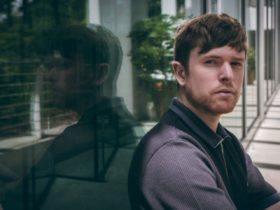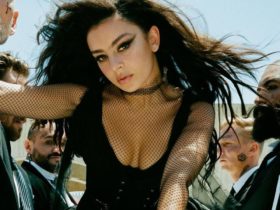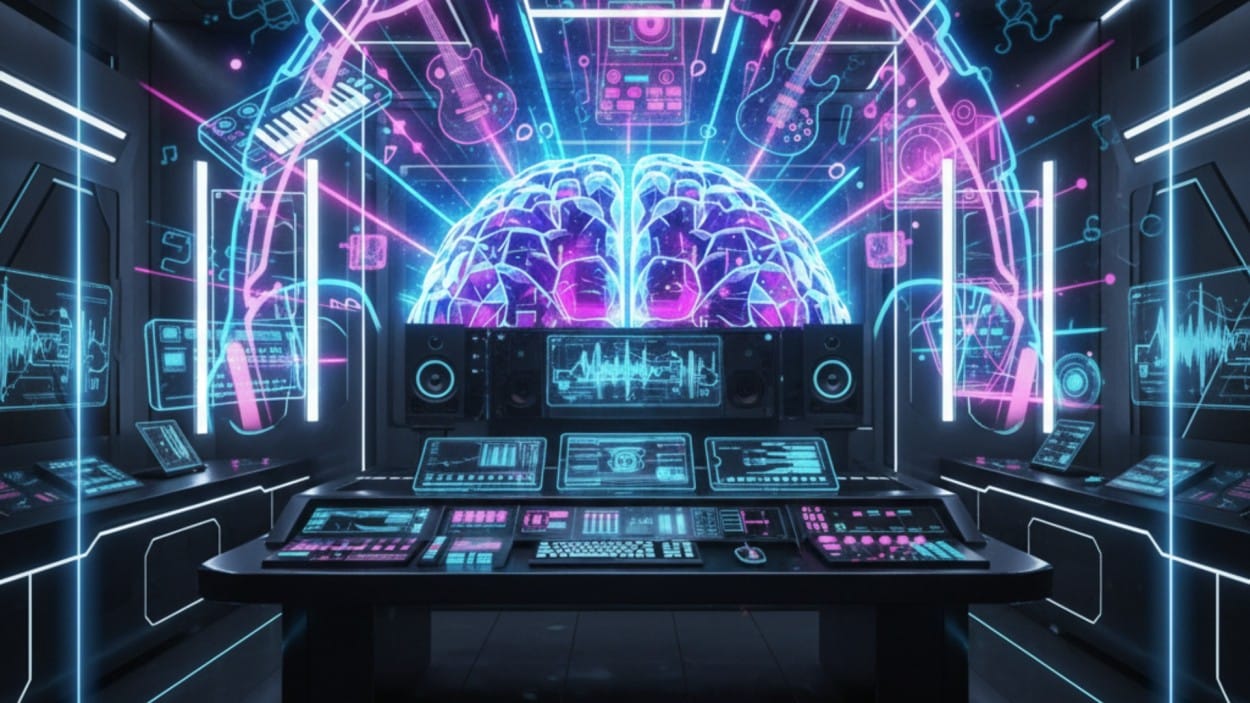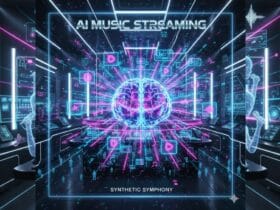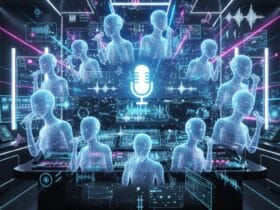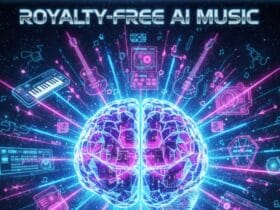Here we go guys, In this article, we will be looking for the future of music in 2026: how AI, Blockchain & VR are changing everything. The music industry has never moved this fast. What took decades to evolve is now transforming every year — powered by AI, blockchain, and immersive tech like VR concerts and virtual artists.
From the creation of songs to the fan experience, 2025–2026 will redefine the meaning of being an artist, a fan, and a creator. Welcome to the future of music — a future that’s already here.
1. AI Will Become Every Artist’s Co-Producer (Not a Replacement)
If 2023–2024 were the years of “AI hype,” then 2025–2026 are the years of AI collaboration.
AI tools like Suno, Udio, Adobe Music Gen, and AIVA are no longer “cool apps” — they’re becoming core tools in every studio.
What AI will help musicians do:
- Generate melody ideas, hooks & harmonies
- Build full demos in minutes
- Enhance vocals with AI-powered layers
- Create custom beats in any style
- Mix and master tracks automatically
But the biggest shift? Artists are proudly calling their songs “AI collab tracks.”
Why this matters:
Creators spend 70% less time stuck in creative blocks. Ideas flow faster. Music becomes more experimental. The future of music production is no longer human vs. AI — it’s Human × AI synergy.
2. Virtual Performances & VR Concerts Will Become Mainstream
Remember when Travis Scott’s Fortnite concert blew our minds?
That was just the trailer. The main movie begins in 2025–2026.
Big artists are building entire virtual tour stops inside:
- Meta Horizon Worlds
- Fortnite Festival
- Roblox
- VRChat worlds
- Decentraland
Why VR concerts are exploding:
- Fans can attend from anywhere
- Unlimited virtual “seats”
- 360° immersive visuals
- Artists earn from virtual merch, skins, and digital tickets
- Shows can run globally in multiple time zones
In 2026, expect the first full VR world tour where fans from 100+ countries attend simultaneously.
3. AI Singers & Virtual Influencers Are the New Pop Stars
Virtual artists aren’t just sci-fi anymore — they’re topping charts.
Characters like:
- FN Meka
- Yameii Online
- Miko Fukamori
- virtual K-pop idols
…have opened the door for a new generation of AI-powered musicians.
By 2026:
- Major labels will launch AI-only artist divisions
- Virtual singers will headline VR concerts
- Fans will “follow” digital characters who evolve with every update
- Human artists will collaborate with AI singers for duets
AI creators are the next wave of musical storytelling.
4. Blockchain Will Rewrite How Artists Earn
(And Stop Royalty Theft Once & for All)
If AI changes how music is created, blockchain changes how musicians are paid.
Smart contracts on networks like Ethereum, Solana, and Polygon will make royalty payments:
- Instant
- Transparent
- Tamper-proof
- Fair for every contributor
Expect these trends by 2026:
- Royalty splits handled automatically
- Artists are paid in seconds instead of months
- Music NFTs that unlock exclusive content
- Merch, tickets, and fan access stored on-chain
- “Royalty-sharing songs” where fans invest and earn with the artist
Music becomes a two-way economy, not an industry controlled by gatekeepers.
5. The Rise of “Fan-Owned Music”
(Fans invest in songs like buying stocks)
Platforms like:
- Royal.io
- Anotherblock
- Sound.xyz
…are letting fans buy tiny “shares” of songs.
This means:
- Fans earn royalties with the artist
- Music communities grow tighter
- Artists fund projects without labels
Imagine a world where your favorite fan-funded track earns you money every time it streams. That’s coming in 2026.
6. Gaming × Music = The Next Big Goldmine
Gaming is now the largest entertainment industry in the world — bigger than movies, sports, and music combined.
And in 2025–2026, we’ll see:
- In-game music drops
- Exclusive album launches inside games
- Artist avatars performing inside open-world lobbies
- AI-generated adaptive soundtracks that change with gameplay
More than 30% of new music discoveries already happen via games. This number will surge as games blend with music universes.
7. Hyper-Personalized Music: AI Will Make “Your Soundtrack”
Imagine walking, and your headphones play music based on your mood, heartbeat, and location.
AI will soon:
- Detect emotions through your phone
- Understand activity (running, sleeping, studying)
- Generate real-time adaptive playlists
- Remix songs to fit your personal taste
Spotify, Apple, and YouTube Music are already working on “AI DJ” models that will drop personalized remixes.
Music becomes not global, but personal.
8. Cultural Revival: Regional & Independent Artists Will Dominate
- AI democratizes production.
- Blockchain democratizes money.
- VR democratizes exposure.
Together, they create an environment where:
- Independent musicians blow up overnight
- Regional genres rise globally
- Hyperlocal scenes go international
- Small-town creators get global audiences
The “Hollywood” style of music dominance ends; the creator era begins.
9. Music Videos Will Be AI-Powered, Interactive & Immersive
By 2026:
- 80% of indie music videos will use AI tools like Runway, Leonardo AI, and OpenAI Sora
- Viewers can enter videos through AR
- Fans can switch camera angles
- Music videos will have alternate endings, chosen by the audience
Creators become directors.
Fans become participants.
The Conclusion: Music Is Becoming Borderless, Limitless & Creator-Driven
The next two years are not just a “new chapter” — they’re a whole new book.
Music in 2025–2026 will be:
- Created with AI
- Owned through blockchain
- Experienced in VR
- Monetized globally
- Personalized emotionally
It will be more human than ever — because artists will finally have full control without limitations.
The soundtrack of the future isn’t just heard.
It’s experienced.


